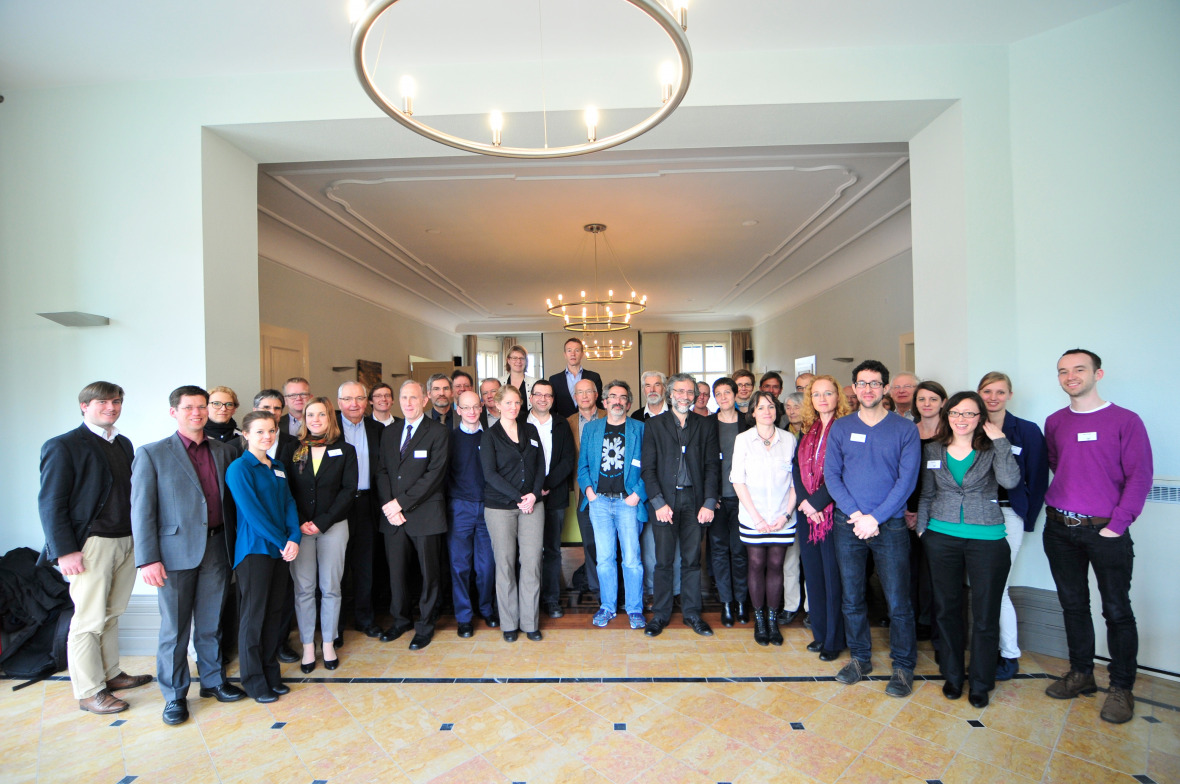Headline:
Challenges for communicating climate change

“In our scientific endeavours, we will never be able to achieve absolute certainty; however, we need to take actions also on the basis of imperfect knowledge.” IASS Executive Director Klaus Töpfer referred in his opening statement to the workshop “Disentangling Climate Curiosities – If Climate Cannot Make Up Its Minds, How Can We Make Up Ours?”, held at the IASS on 9 April, 2014, to this well-known situation in which policy-makers have to make decisions. For this, the precautionary principle, a basic principle of environmental politics developed during the Declaration of the Environment Summit in Rio de Janeiro in 1992, was formulated. Scientific Director Mark Lawrence opened with a reminder of the inherent challenges for the communication of climate change and climate variability. “In everyday life, everyone has experienced the bumpy ride from winter to summer many times, and even during a cold week in spring, nobody has any doubts that summer is coming; but nobody has experienced a 4° or 6° warmer world, making it much more difficult to communicate about the variability on the path of global warming.”

That climate science is not “settled” has been a matter for public discussion for many years. One prominent issue for debate is the observed slowing rate of increase of the global average surface temperature. Even though this phenomenon, the so-called “hiatus” or “pause”, does not question the overall consensus in science and politics about global warming and long-term climate change, it has been a topic of discussion in the media and the public. Uncertainty is not only a matter of scientific dispute to be solved within science. Recent debates about the “hiatus” illustrate a remaining gap between science and society, between knowledge and action. On the one hand, it seems that we have bridged this gap as much as possible, if transformations to reduce the pressure on the climate system are to be implemented effectively. On the other hand, however, action against climate change has to be taken – even when it is clear that there is some uncertainty. Science has to meet the dual challenge of reducing uncertainty while being clear about uncertainties that remain.
The workshop participants also discussed the power of images and pictures, which constitute an increasingly important element in the public debates around climate change. Therefore, stronger integration of different scientific disciplines like the humanities and social sciences, as well as the incorporation of other kinds of knowledge, will be pivotal. Bringing these strands together is necessary in order to understand societal perceptions of and responses to climate change, and also to effectively govern sustainability transformation. A convincing proposal in order to close the gap between science and policy was put forward and found the approval of the participants:
- answers to current challenges must be provided in a timely manner;
- the number of fora which bring together scientists and policy-makers should be increased;
- global change research needs to be redesigned, a good example being the Future Earth initiative, to which the IASS is actively contributing;
- more science training programmes for policy-makers and more policy training programmes for scientists, respectively, need to be provided;
- interpreters are needed in order to “inject the science into the policy-making process”.
Klaus Töpfer, in his closing remarks, underlined that a key feature of the research undertaken at the IASS is the ‘co-design’ of knowledge, aimed at the production of ‘transformative knowledge’. Thus, the debate about the “hiatus” should be used as an opportunity to better understand science-society interactions. The lessons learned may be applicable to other issues calling for transitions towards sustainability.
